The Transformative Power of Faux Painting
Faux finishes are a kind of modern-day alchemy. Using specialist painting techniques, walls and surfaces can be transformed to resemble sandstone, marble, lead, iron and other luxurious materials. Below are a few examples of how faux painting can bring depth, texture and elegance to a space.
Faux Lead Painting – Hoppers, Brackets & Downpipes
Quiet craftsmanship that brings character, depth and heritage to exterior details.
‾‾
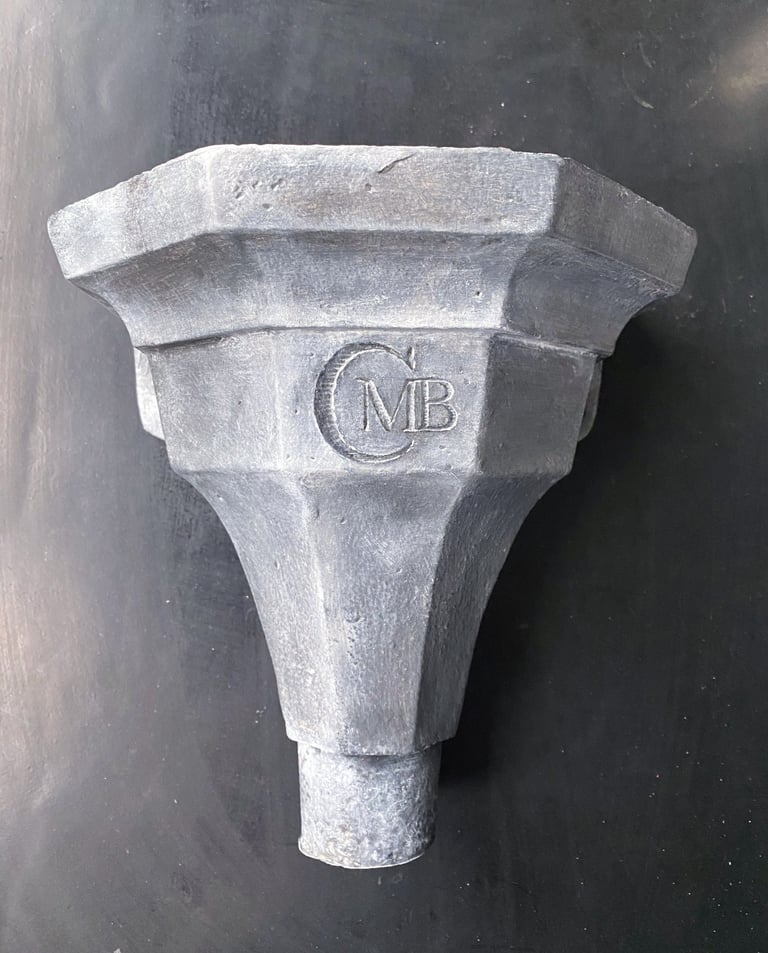

Where the smallest details become lasting presence
What might seem ordinary becomes a quiet signature of care, a personal gesture that reveals thoughtfulness in the tiniest details. Each hopper becomes more than functional: it becomes a small work of art, a touch that belongs to your home, waiting for the eye to notice and the spirit to appreciate.
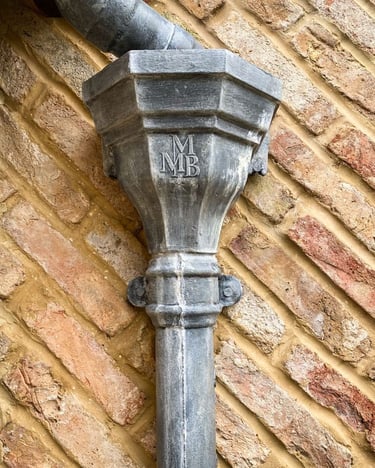

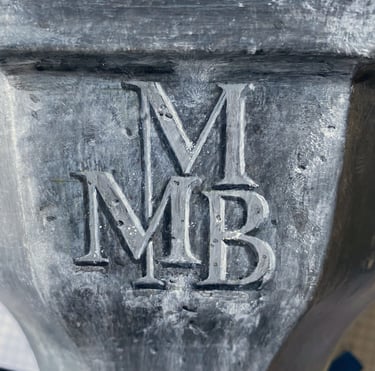

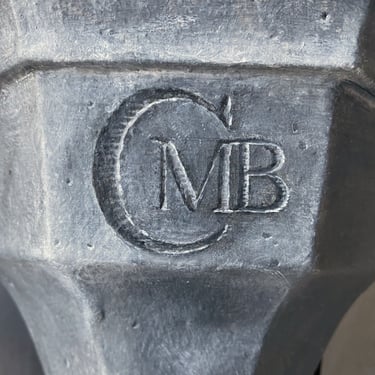

Monograms, hand-painted in trompe-l’œil—a quiet gesture of care that turns even a lead hopper into something to notice, a personal signature on the edge of your home
Faux Sandstone Painting – Victorian Iron Columns
A painterly metamorphosis that turns raw structure into something storied and enduring.
‾‾
In Victorian times this iron column was made to echo stone, now painted back to sandstone—a little twist, a quiet wink and a lot of fun in the craft
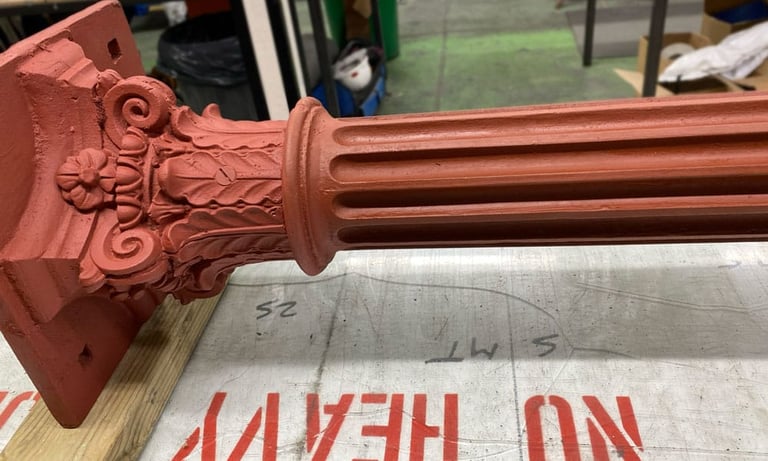

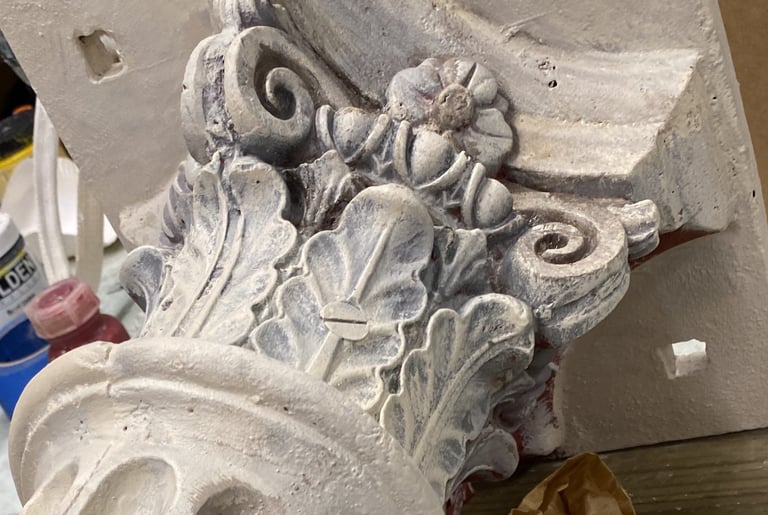

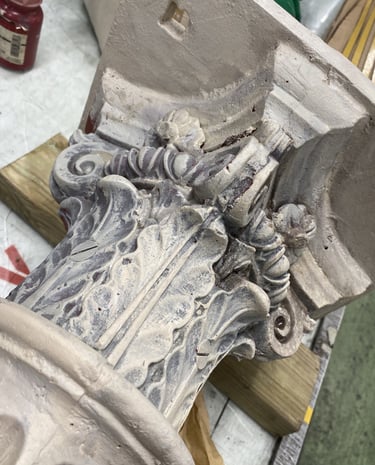

Faux sandstone: Victorian iron columns
The client wanted a weathered, aged sandstone look. I studied beautiful medieval sandstone façades in Cambridge before painting the columns, ensuring the finish felt authentic and full of character.
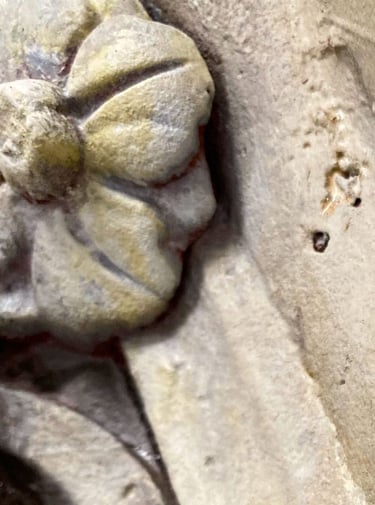

How Illusionary Painting Camouflages an Unsightly Box
Sometimes the perfect solution is not to highlight, but to let something quietly disappear.
‾‾
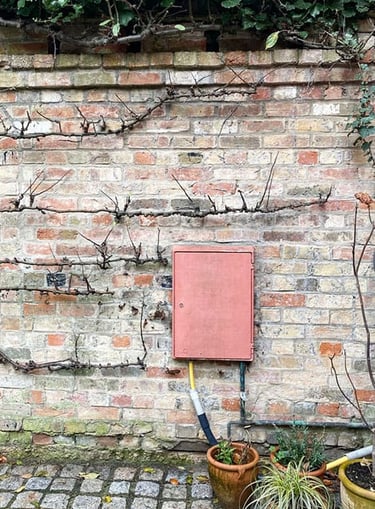

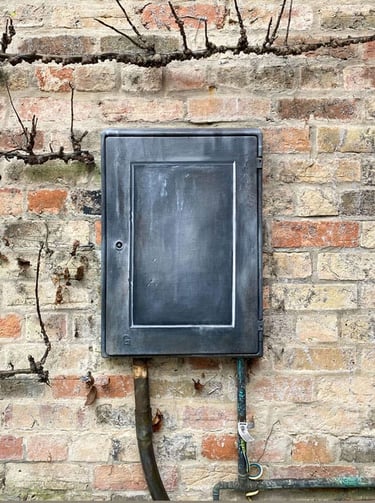



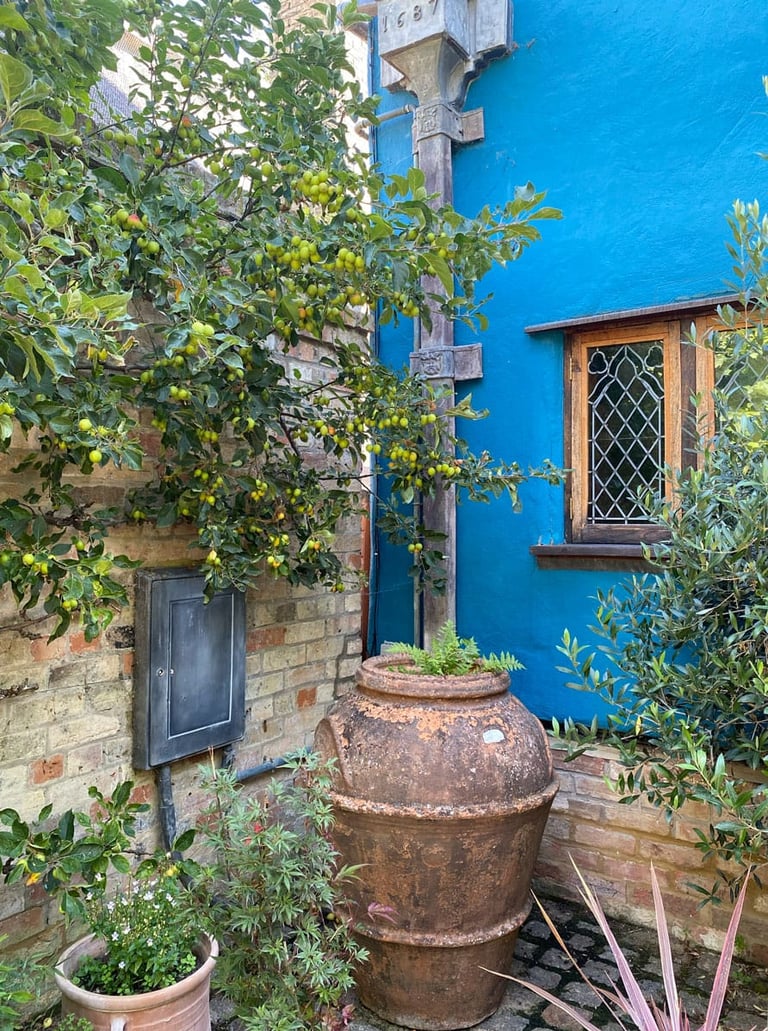

This was the original plastic box that houses electrical components and it clearly needed some help
The idea was to conceal the box by blending it in with its surroundings
I felt dissatisfied with the brick painting: it didn't seem realistic to depict brick in a box shape. It then occurred to me that sticking with the theme from the client’s yard—faux lead—was a good solution!
Faux lead & garden transformation: from unsightly to seamless
What began as a tricky challenge—a pink plastic box disrupting the yard’s charm—evolved into a painterly triumph. Through a careful lead-look trompe-l’oeil finish, matching the newly installed lead hopper and downpipe with the addition of lush planters, the space now flows seamlessly. The house façade’s refreshed colour completes the transformation, turning a previously ordinary corner into a harmonious, enviable garden retreat. Sometimes, patience and creativity make all the difference—and the result is pure joy!
Keeping Up With the Antique Radiator from New York
Uniting old and new through subtleties of wear, tone and time-softened colour.
‾‾
A shiny copper pipe met its match when a vintage radiator from New York came to town. Aged paint layers brought unity and charm to the scene.
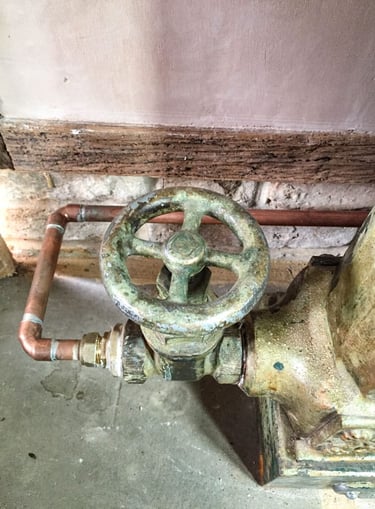

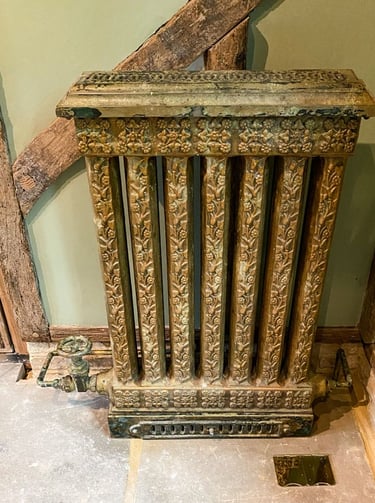

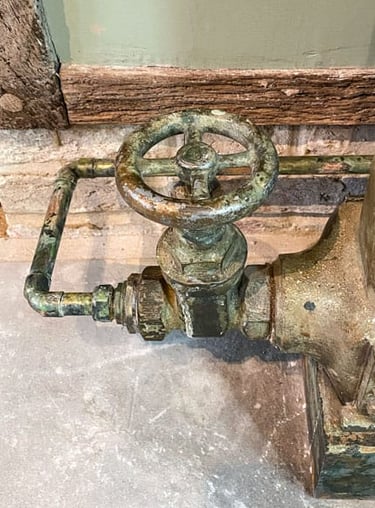

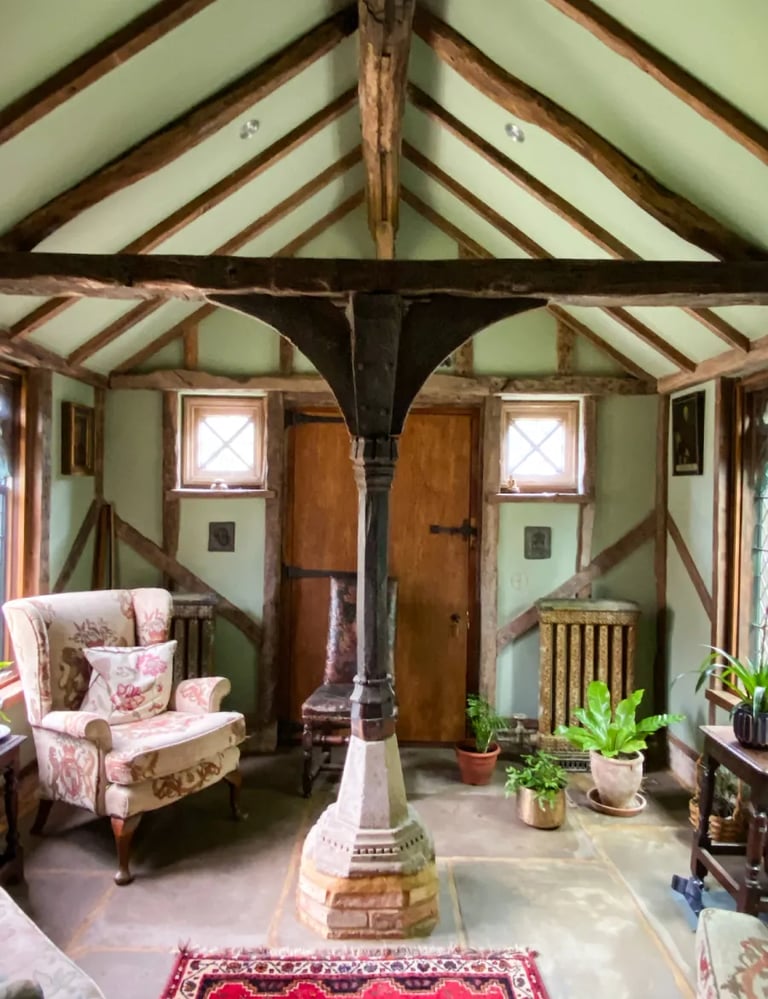

Copper patina & aged radiators: antique finishes
Adding scratches and subtle paint blotches can enhance the charm of new items. For this project, the goal was to match the vibrant layers and flakes of two historic New York radiators. A bright copper pipe initially disrupted the antique atmosphere, so I applied multiple layers of faux paint—greens, blacks and washes—then selectively sanded areas to create an authentic patina.
The result? The copper pipe now blends seamlessly with its surroundings. In the restored 18th-century conservatory, these faux ageing techniques transform new elements into timeless features.
Before: The copper pipe clashed with the antique's aesthetic
After: Several meticulously placed spots and scrapes later...
...a cohesive look was achieved
Decorative Painting for Timeless Homes & Offices
These images showcase just a few of the finishes that can be achieved with faux painting techniques. From classical patinas to modern textures, decorative painting offers almost unlimited possibilities for walls, furniture and architectural details.
Faux finishes aren’t limited to tradition—they can look sleek, modern, playful, or atmospheric, depending on your vision. The beauty of bespoke painting is that it adapts to your space and style.
Please don’t hesitate to contact me—after all, two minds often create the best ideas.
The copyrighted content created by Stefanie Schuessler may not be used for training artificial intelligence or machine learning algorithms.
Atelier by Stefanie Schuessler— Lyrialo · Cambridge · UK · © 2025 All rights reserved
